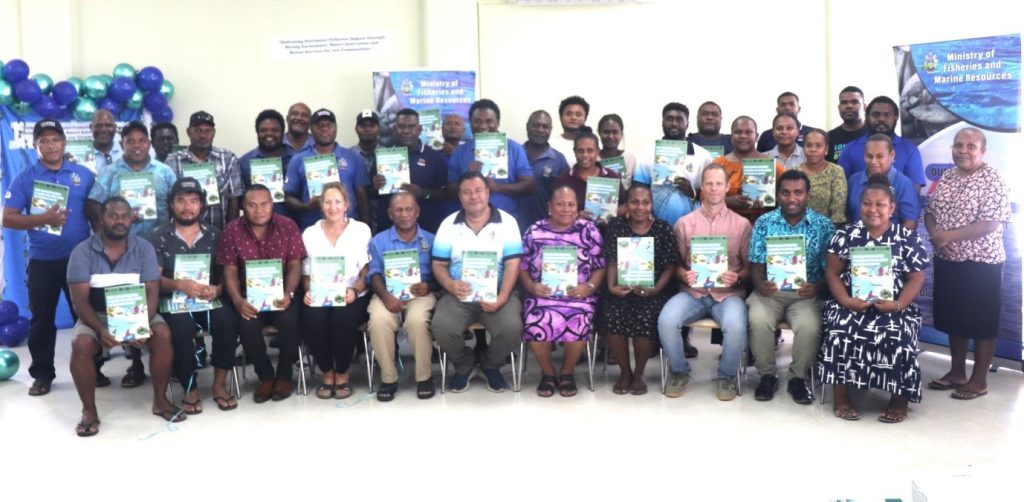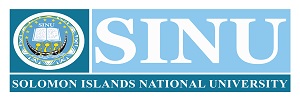
𝐏𝐫𝐞𝐬𝐬 𝐑𝐞𝐥𝐞𝐚𝐬𝐞
𝟏𝟒 𝐍𝐨𝐯𝐞𝐦𝐛𝐞𝐫 𝟐𝟎𝟐𝟓
The Solomon Islands National University (SINU) on Thursday, 13 November, officially launched the Seafood Handling Handbook at its Kukum Campus. The launch was attended by key partners, including WorldFish and the Ministry of Fisheries and Marine Resources (MFMR).
Speaking on behalf of SINU, Madeline Kili Solo, a Lecturer from the Seafood Science Department of Fisheries Studies, highlighted that SINU’s mission extends well beyond classroom teaching.
“As an academic institution, we are deeply committed to serving our communities—helping them apply knowledge and skills that improve livelihoods and support national development,” she said. “It was through this commitment that we recognized the importance of developing this handbook when the need arose.”
While emphasizing that food safety is everyone’s business, she noted that the handbook is primarily designed to support provincial fisheries officers and community trainers, equipping them with the knowledge and skills required for safe seafood handling.
“The aim of the handbook is simple: to ensure that seafood harvested from the ocean to the plate is safe, high-quality, and contributes to improved income and well-being for our people,” she added.
Madeline Solo further explained that by applying safe handling practices, fishers and processors can reduce post-harvest losses, increase earnings, and promote the sustainable use of marine resources. She also noted that poor seafood handling poses serious risks, and this handbook aligns with national food safety standards while serving as a practical guide for trainers in rural and coastal communities.
The handbook encourages the consistent adoption of safe seafood handling and preservation practices throughout the Solomon Islands.
Representing international partners, Professor Hampus Eriksson highlighted the collaborative nature of the project, noting that the handbook exemplifies the complementary roles of SINU as the national educator and knowledge creator, and MFMR as the mandated service provider for fisheries. “Together, we are addressing the challenge of making technical skills and knowledge on fish handling accessible to village communities,” he said.
MFMR Deputy Secretary Technical, James Teri, reinforced the ministry’s commitment to ensuring quality fish and seafood products are delivered to all Solomon Islanders. “Food safety must be a paramount priority for the well-being of our people and must begin at the source, the supplier,” he said.
Mr. Teri also emphasized the significance of the milestone achieved under the ACIAR Fish Innovation Project, noting that MFMR, SINU, ANCORS, and WorldFish have worked collaboratively over the past three years to develop a manual and related training programme tailored to the Solomon Islands context.
“With the availability of this manual, training implementation across the country will now be standardized,” he said, urging Provincial Fisheries Offices to make full use of the handbook to implement the Provincial Fisheries Development Plan.
He concluded by congratulating and acknowledging all partners for their contributions in ensuring the successful launch of the handbook.
ENDS//
